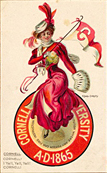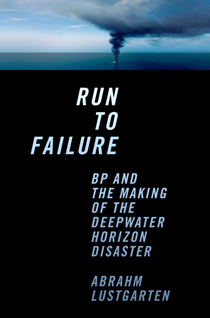THE ESSENTIALS
PASSAGESPresident Emeritus Dale R. Corson dies at age 97
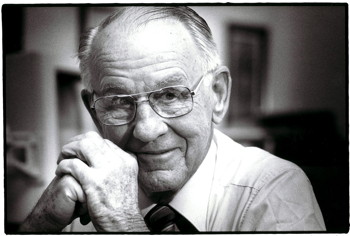
Dale Corson See larger image
Dale Raymond Corson, Cornell's eighth president, a physicist and an engineer, died March 31 of congestive heart failure at his home at Kendal at Ithaca. He was 97.
A professor emeritus of physics, Corson was a polymath whose achievements in physics and engineering date to 1940, when he discovered astatine, element 85 in the periodic table of the elements. During World War II he helped introduce the use of radar into military operations.
But his finest moments came as Cornell's president from 1969 to 1977. Modest and mild-mannered, he led Cornell through the era of student protest against the Vietnam War and for civil rights and restored the university to stability.
After the peak of campus student activism and a wave of faculty resignations, Corson calmly and resolutely poised the university for a new period of growth, then shepherded it through the economic recession of the 1970s.
"Dale Corson guided Cornell through one of its most difficult periods with extraordinary wisdom and grace," said President David Skorton. "His love for this university was exemplary, and I feel privileged to have had him as a mentor and friend."
Corson earned an A.B. at the College of Emporia (1934) and an M.A. at the University of Kansas (1935); his Ph.D. in physics was awarded by the University of California-Berkeley in 1938.
In 1946 Corson joined the Cornell faculty as an assistant professor of physics. He was appointed associate professor (1947), full professor (1952), Department of Physics chair (1956) and became dean of the College of Engineering in 1959. He served as provost from 1963 to 1969, and as chancellor from 1977 to 1979.
A celebration of Corson's life will be held Sept. 8 at 10:30 a.m. in Sage Chapel, followed by a reception in Sage Hall Atrium.
Focus: Imagination
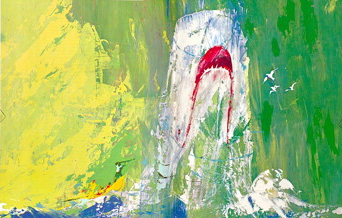
A LeRoy Neiman illustration from a 1975 "Moby Dick" artist's limited edition. See larger image
What do an original Sputnik satellite, early medical books and the crystal ball from "The Wizard of Oz" have in common? You figure it out.
That's the goal of Cornell University Library's newest exhibition, which will open for Reunion Weekend and feature treasures from the personal collection of Jay Walker '77 (the Walker Library of the History of Human Imagination).
In the exhibit, selected items are organized into an interactive, innovative flow that relies on serendipity and viewers' own interpretation.
This exhibit marks the first time such an extensive selection from the Walker library will be on public display for free. Walker will open the ceremonies with a lecture in Milstein Auditorium at 4:30 p.m. Thursday, June 7, and the exhibition debuts at 5:30 p.m. in Kroch Library's Division of Rare and Manuscript Collections.
Calling all memories
Get ready to share your most vivid, cherished stories from Cornell!
Slope Media, a student-run multimedia group, is piloting a website to collect and feature audio and video clips of Cornellians from every walk of life. Their goal? To build a diverse tapestry of stories in celebration of the university's sesquicentennial in 2015.
Students will be conducting video interviews at Reunion. If you won't be in Ithaca for Reunion, you can record your audio story any time at www.slopemedia.org/150.
Philosophy alum, NYTimes writer wins Pulitzer
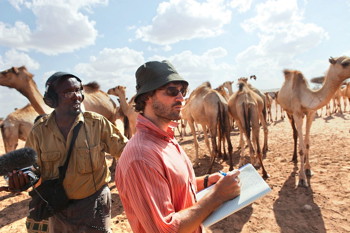
Jeffrey Gettleman '94 covers 12 countries for The New York Times. His work has focused on internal conflicts in Kenya, the Democratic Republic of the Congo, Somalia, Sudan and Ethiopia. Photo: Michael Kamber/The New York Times. See larger image
Jeffrey Gettleman '94, the East Africa bureau chief for The New York Times, won the Pulitzer Prize for international reporting April 16. His citation for the $10,000 award reads: "Awarded to Jeffrey Gettleman of The New York Times for his vivid reports, often at personal peril, on famine and conflict in East Africa, a neglected but increasingly strategic part of the world."
Gettleman covers 12 countries for the Times. His work has focused on internal conflicts in Kenya, the Democratic Republic of the Congo, Somalia, Sudan and Ethiopia. He previously worked for the Times in New Jersey, Baghdad and Atlanta.
Gettleman studied philosophy at Cornell (see this issue's End Note, p. 33) and earned a Master of Philosophy degree from Oxford University, where he was a Marshall scholar.
In April 2011, Gettleman spoke on campus about being kidnapped, along with his wife, Courtenay Morris '94, a Times Web producer, while reporting on Somali rebels in Ethiopia in 2007. The couple, who today live in Nairobi with their two sons, were released after a week in an Ethiopian prison along with another colleague.
Gettleman was also held hostage for several hours during the 2003 invasion of Iraq by armed gunmen near Fallujah.
Land-grant legacy
A portrait of Justin Smith Morrill hangs in Uris Library, in the Class of '57 Kinkeldey Room, near a window that
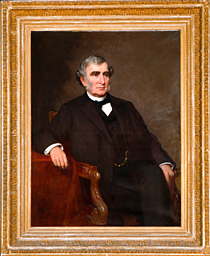
This portrait of Justin Smith Morrill hangs in Uris Library's Class of '57 Kinkeldey Room. See larger image
The Vermont senator may not be a household name, but his contributions to higher education – and Cornell – are undeniable. Morrill authored and championed the Land-Grant College Act of 1862, which set up federally funded land for colleges and universities in every state in the union. Cornell is New York's land-grant institution.
Abraham Lincoln signed the bill into law July 2, 1862, in the midst of the Civil War, and Cornell University Library will be celebrating its 150th anniversary with an exhibition of Morrill-related photographs, manuscripts and artifacts from the university archives May 25 through Dec. 21.
The exhibit will be in Olin and Uris libraries, and it paves the way for the library's major exhibition in 2015, which will celebrate the sesquicentennial of Cornell University's founding.
In the centerfold
Cornell was featured front and center in the April 7 edition of The Main Street Wire, the community newspaper of Roosevelt Island. CornellNYC Tech – Home of the Technion-Cornell Innovation Institute – will make its home on the island, with groundbreaking slated for 2014.
It was an almost all-Cornell edition, including interviews with CornellNYC Tech campus founding dean Dan Huttenlocher and vice president Cathy Dove.
Disastrous greed

Abrahm Lustgarten '96 See larger image
In his book "Run to Failure: BP and the Making of the Deepwater Horizon Disaster" (W.W. Norton, 2012), Abrahm Lustgarten '96 digs into the history of the company behind the disastrous 2010 Gulf Coast oil spill.
"The story, though, is not about what happened in the Gulf, but why it happened and who allowed it," says Lustgarten, an Ithaca native and investigative reporter for ProPublica.
The narrative draws on leaked internal BP documents, court records and interviews to demonstrate how BP consistently placed profit and cost cutting ahead of safety and environmental protection, he says.
"As a result, over two decades, more than 35 people have died, BP has faced three criminal convictions, but no individual senior BP managers have yet been held accountable for their actions," Lustgarten says. "That may soon change. In April, a former BP engineer was arrested not for decisions that caused the disaster, but for destroying evidence in the Gulf spill, and the U.S. Department of Justice has recently said more charges are possible."
